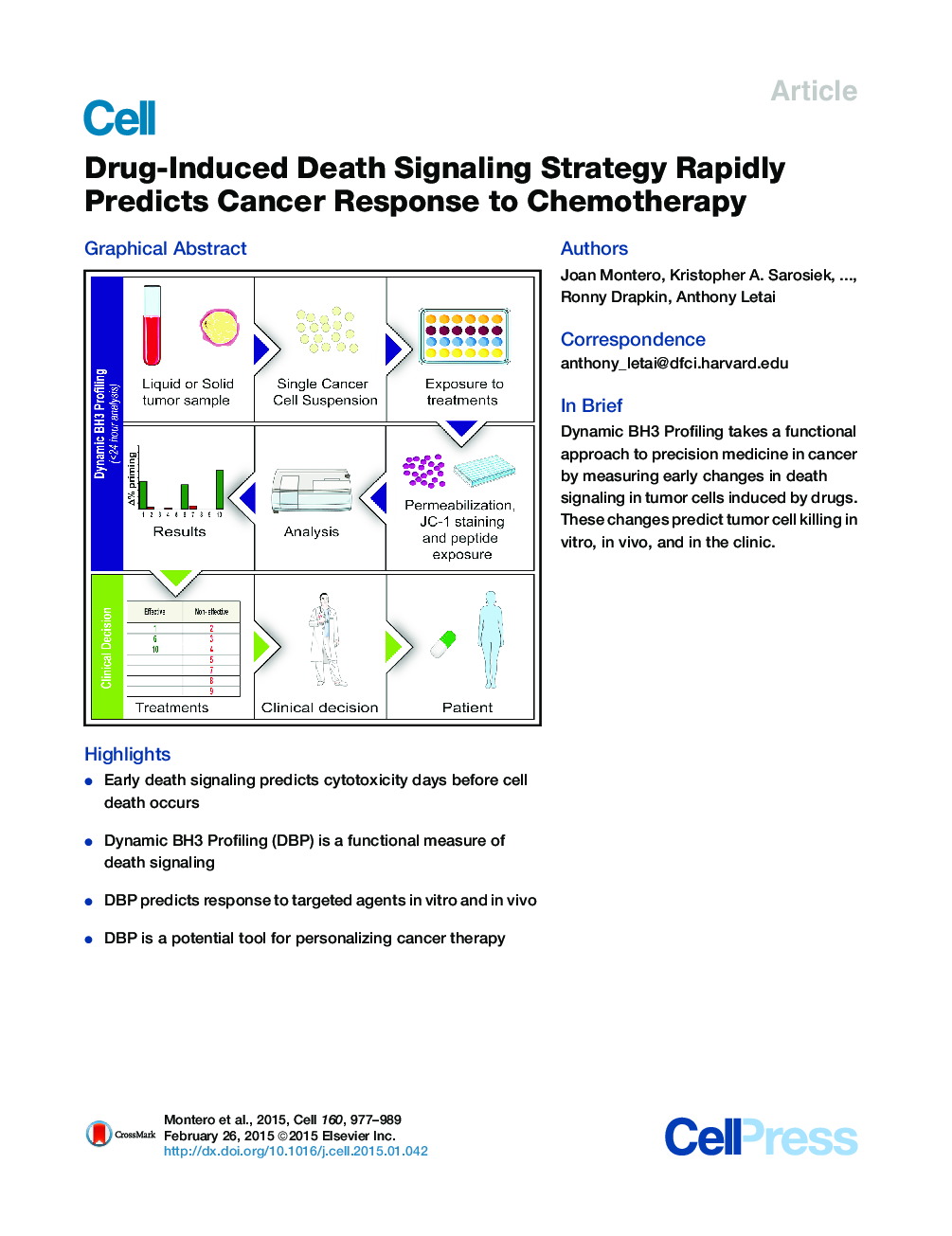| کد مقاله | کد نشریه | سال انتشار | مقاله انگلیسی | نسخه تمام متن |
|---|---|---|---|---|
| 2035151 | 1072142 | 2015 | 13 صفحه PDF | دانلود رایگان |
• Early death signaling predicts cytotoxicity days before cell death occurs
• Dynamic BH3 Profiling (DBP) is a functional measure of death signaling
• DBP predicts response to targeted agents in vitro and in vivo
• DBP is a potential tool for personalizing cancer therapy
SummaryThere is a lack of effective predictive biomarkers to precisely assign optimal therapy to cancer patients. While most efforts are directed at inferring drug response phenotype based on genotype, there is very focused and useful phenotypic information to be gained from directly perturbing the patient’s living cancer cell with the drug(s) in question. To satisfy this unmet need, we developed the Dynamic BH3 Profiling technique to measure early changes in net pro-apoptotic signaling at the mitochondrion (“priming”) induced by chemotherapeutic agents in cancer cells, not requiring prolonged ex vivo culture. We find in cell line and clinical experiments that early drug-induced death signaling measured by Dynamic BH3 Profiling predicts chemotherapy response across many cancer types and many agents, including combinations of chemotherapies. We propose that Dynamic BH3 Profiling can be used as a broadly applicable predictive biomarker to predict cytotoxic response of cancers to chemotherapeutics in vivo.
Graphical AbstractFigure optionsDownload high-quality image (233 K)Download as PowerPoint slide
Journal: - Volume 160, Issue 5, 26 February 2015, Pages 977–989
